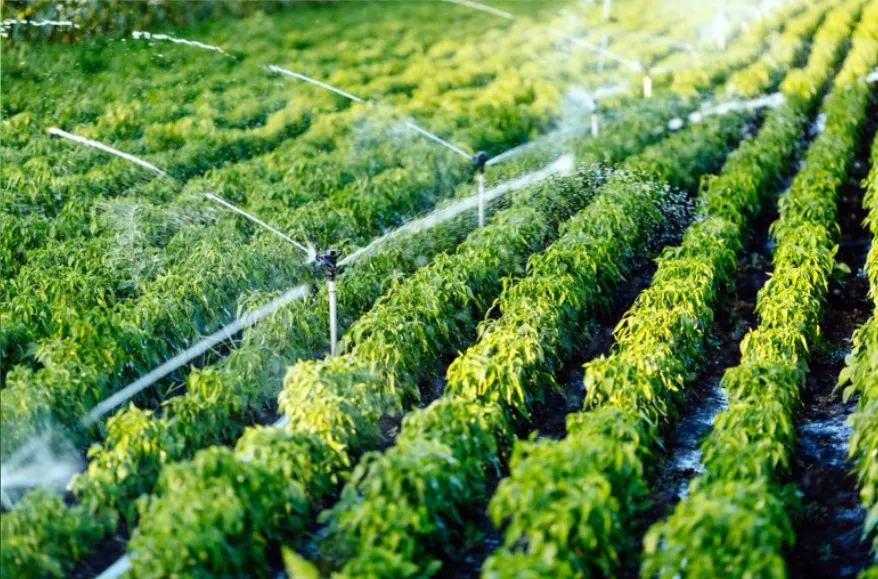

Organic Agriculture
Organic agriculture is a holistic farming system that seeks to produce food in harmony with natural ecosystems while avoiding synthetic inputs like chemical fertilizers, pesticides, and genetically modified organisms (GMOs). It emphasizes sustainability, biodiversity, soil health, and ecological balance, offering a sustainable alternative to conventional agricultural practices. In India, organic farming is deeply rooted in traditional agricultural practices and is gaining traction due to growing consumer awareness and government support. Kerala, often referred to as “God's Own Country,” has been a pioneer in promoting organic farming through its policies and initiatives aimed at transforming agriculture into a more eco-friendly system.
Established in 1999, our garden service has been transforming outdoor spaces into thriving, beautiful landscapes for over two decades. With a commitment to quality and personalized care, our experienced team offers a full range of services, from design to maintenance, ensuring your garden flourishes in every season.Established in 1999, our garden service has been transforming outdoor spaces into thriving, beautiful landscapes for over two decades.
Key Principles of Organic Agriculture
Organic farming aims to enhance the health of soil, plants, animals, and humans. It works with natural cycles and ecosystems, promotes equity and respect among all stakeholders from farmers to consumers, and encourages responsible management of resources and long-term sustainability. In Kerala, emphasis has been placed on integrating traditional farming practices with modern organic methods, focusing on sustainability and community involvement.
Branches of Organic Agriculture
Crop-based organic farming focuses on the cultivation of organic crops like cereals, pulses, fruits, and vegetables. In India, crops such as turmeric, ginger, and basmati rice are widely cultivated using organic practices. Kerala is renowned for organic cultivation of spices like cardamom, black pepper, and nutmeg. Livestock organic farming emphasizes raising animals on organic feed without growth hormones or antibiotics and involves practices like rotational grazing, organic feed production, and biodynamic farming. Kerala has seen a rise in the practice of integrated livestock farming, combining it with coconut and spice plantations.


Horticulture deals with organic fruit, vegetable, and flower production, including greenhouse farming and urban organic gardening. Kerala has been promoting rooftop vegetable gardening as part of urban organic farming initiatives. Organic aquaculture involves fish farming using organic feed, maintaining water quality, and avoiding synthetic additives. Kerala's extensive backwaters provide opportunities for organic fish farming, enhancing both income and environmental sustainability. Agroforestry and perennial systems combine agriculture with forestry for mutual benefits, such as maintaining biodiversity. Kerala's home garden system is an example of successful agroforestry integration. Mixed organic farming integrates crops, livestock, and aquaculture in a single system to maximize resource use.
Variations in Organic Agriculture
Biodynamic farming, founded by Rudolf Steiner, integrates spiritual and cosmic elements, using preparations and lunar cycles for soil enrichment. Permaculture focuses on sustainable land use, blending organic farming with eco-engineering, and is practiced on small-scale farms in Kerala. Natural farming, promoted by Subhash Palekar, avoids external inputs and preserves traditional methods, widely adopted in Kerala. Regenerative agriculture restores soils, boosts biodiversity, and improves water cycles. Urban organic farming, including rooftop gardens and vertical farms, thrives in Kerala cities like Thiruvananthapuram and Kochi, encouraging self-sufficient food production.
Variances in the Study of Organic Agriculture
Regional variances arise as organic farming techniques differ based on climate, soil type, and local practices. For example, terracing is crucial in hill regions like Wayanad in Kerala, while mulching is widely used in its coastal areas. Cultural influences also shape organic farming approaches, with indigenous knowledge and traditional practices leading to variances. In India, the organic farming movement draws heavily from age-old agricultural wisdom. Economic variances indicate that organic farming's profitability depends significantly on subsidies, market access, and certification costs. Kerala's organic farming programs have focused on providing subsidies to small farmers and ensuring market access through organic markets and fairs. Scientific innovations in biofertilizers, bio-pesticides, and organic soil amendments create variations in organic practices, while technological integration like AI and IoT adds another layer of variance. Consumer behavior and market trends further influence organic farming, with Kerala's growing organic tourism playing a role in promoting the demand for local organic products.
Emerging Areas of Study in Organic Agriculture
Soil microbiome research investigates how organic practices influence soil microbial diversity and productivity. Carbon sequestration studies focus on the role of organic farming in mitigating climate change by trapping carbon in soils. Kerala’s initiatives in carbon-neutral farming provide a model for such studies. Economic feasibility is being explored to identify cost-effective methods for small-scale organic farming and certifications. Impact assessments analyze the long-term effects of organic farming on biodiversity, water quality, and ecosystem services. Kerala’s unique biodiversity hotspots, such as the Western Ghats, offer valuable insights into these assessments. Technological integration examines how blockchain, AI, and precision farming tools enhance organic certification and traceability. Kerala has initiated digital platforms to connect organic farmers directly with consumers, ensuring transparency and trust in the supply chain.


